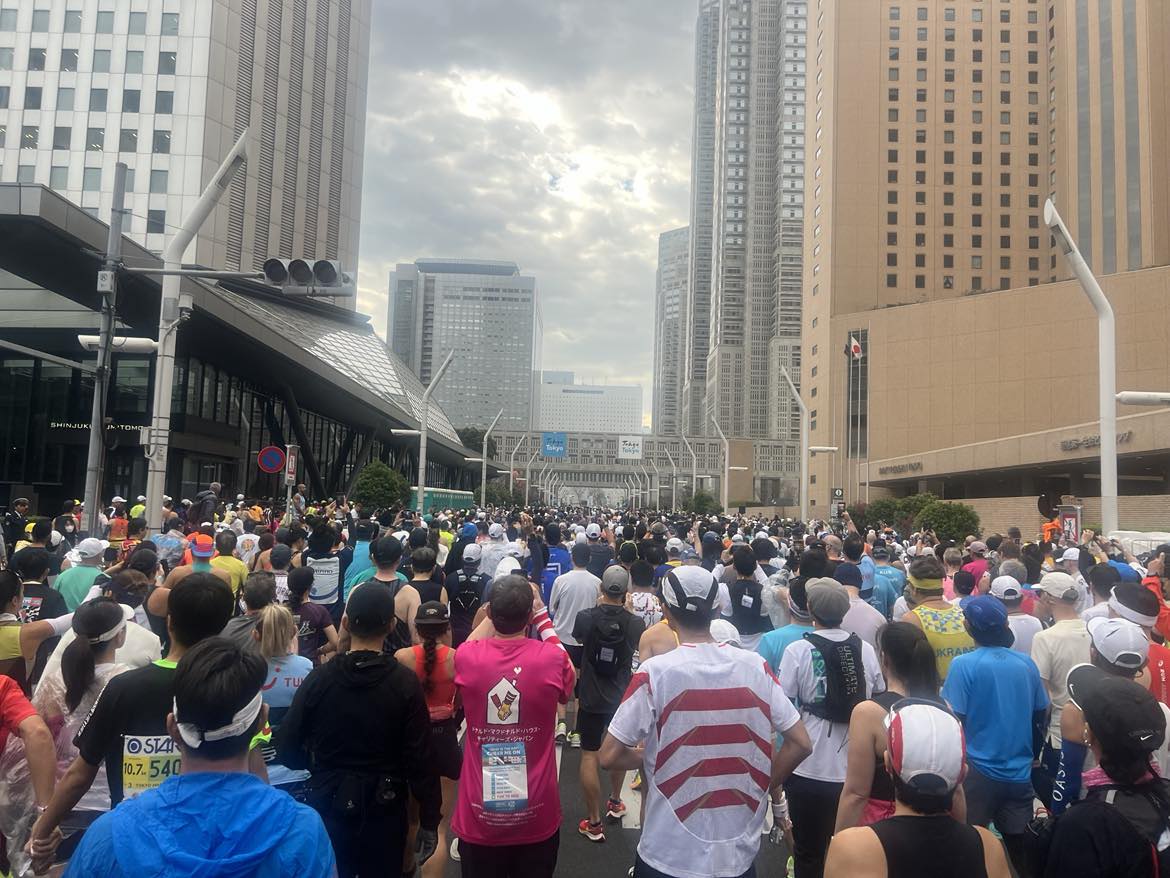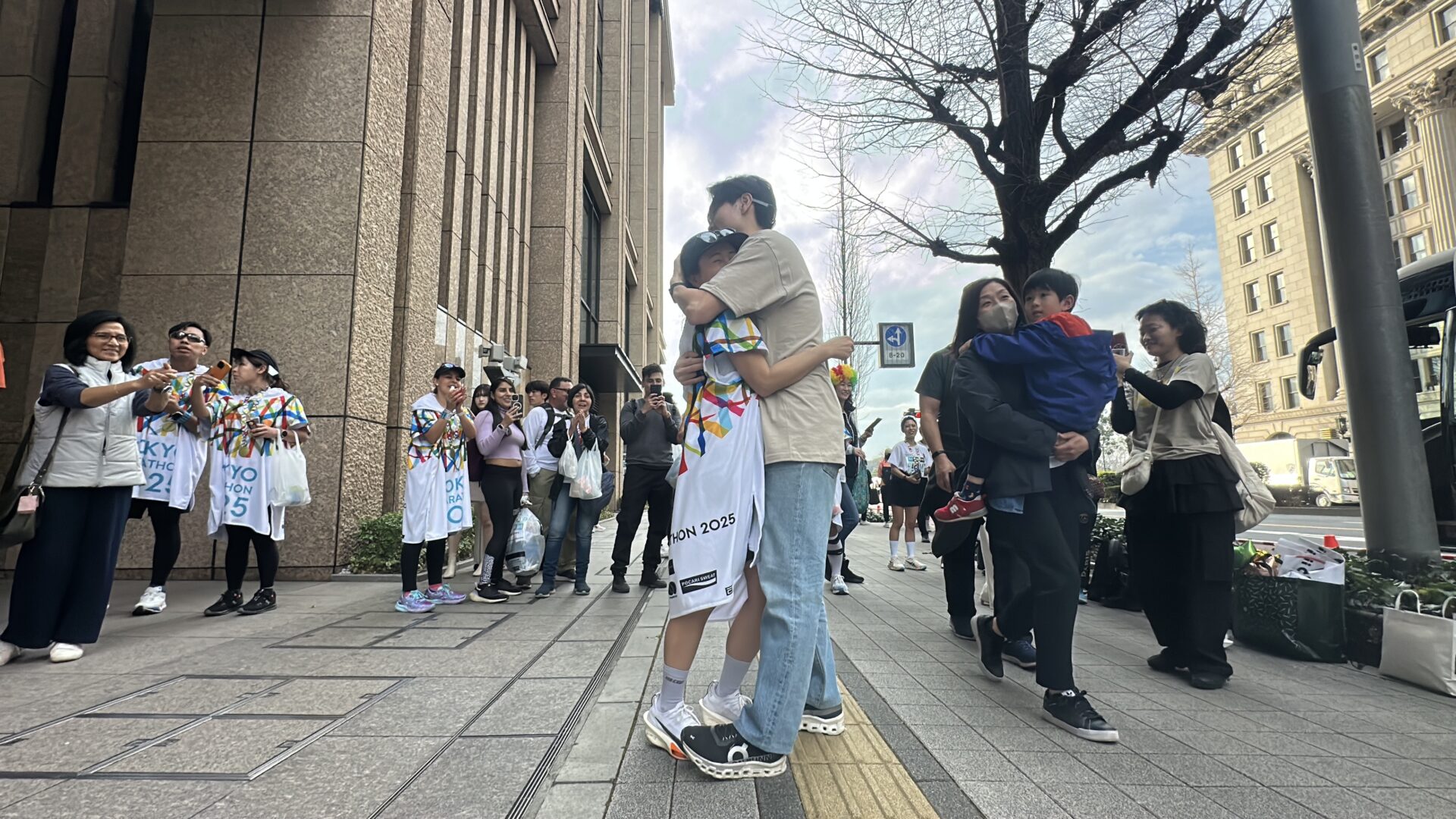Interview Relay
42 Stories of the Tokyo Marathon
〜Connecting Hearts〜
“My Tokyo Marathon is Always and On-Going.” —My annual event that I want to continue for years to come
- Supporters
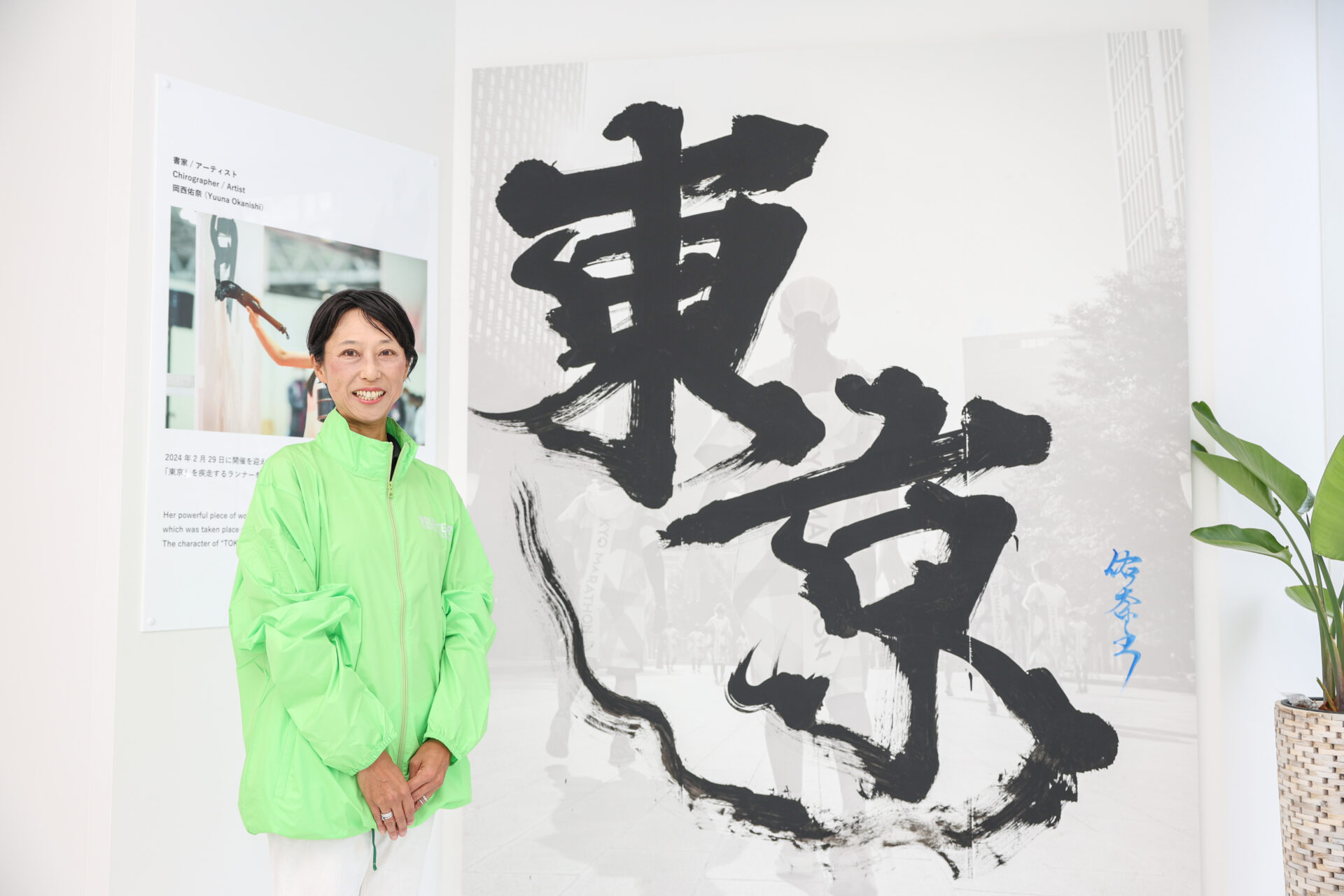
This is an interview relay that connects 42 stories about thoughts on the Tokyo Marathon.
Introducing Ms. Yasuko Kusaka, who has participated as a volunteer every year since the first race in 2007.
Ms. Kusaka, who has participated in the event since its first run, will talk about the appeal and joy of volunteering, the growth of the Tokyo Marathon Foundation’s volunteer organization VOLUNTAINER, which has grown alongside the Tokyo Marathon, and fostering a culture of volunteering in sports in Japan. She shared her thoughts from her perspective.
Each time, I gain some kind of learning and personal growth. I continue because I want to contribute to the development of the event.
–First of all, please tell us what inspired you to start volunteering for the Tokyo Marathon.
I have participated as a volunteer in all of the past Tokyo Marathon since the first race. At first, I wanted to run the Tokyo Marathon, so I applied for the runner lottery, but I was not selected. Then, at one point, I heard that they were looking for volunteers. I had experience in volunteering in sports at the 1991 World Athletics Championships. Since my mother had been selected as a runner, I thought I would give volunteering a try. I found it very interesting, and I have participated in it every year since then, having gained various experiences along the way, to this day. It has become like my own annual event.
–You’ve had a perfect attendance since the first race. What makes you want to participate in it every year? What do you like about the Tokyo Marathon?
There is always something to learn. And after learning, there is reflection, so I try to solve problems, try a different approach, and also get various hints from my fellow participants, so I want to participate in it every year in order to put them into practice. In my volunteer deputy leader functions (*1), I have an opportunity to speak in front of many people and make various preparations, but actually, I’m not good at those kinds of things. By using the Tokyo Marathon as a place of opportunity, I’ve gradually become better at preparing in advance and speaking in front of people… so I wishfully think.
I’m also happy to find that the Tokyo Marathon itself shows an attitude and willingness to further develop as an organized event every time. And I myself every time think about what I can do to achieve that, and I feel that’s what makes it the Tokyo Marathon.
Evolving fostering a culture of volunteering in sports
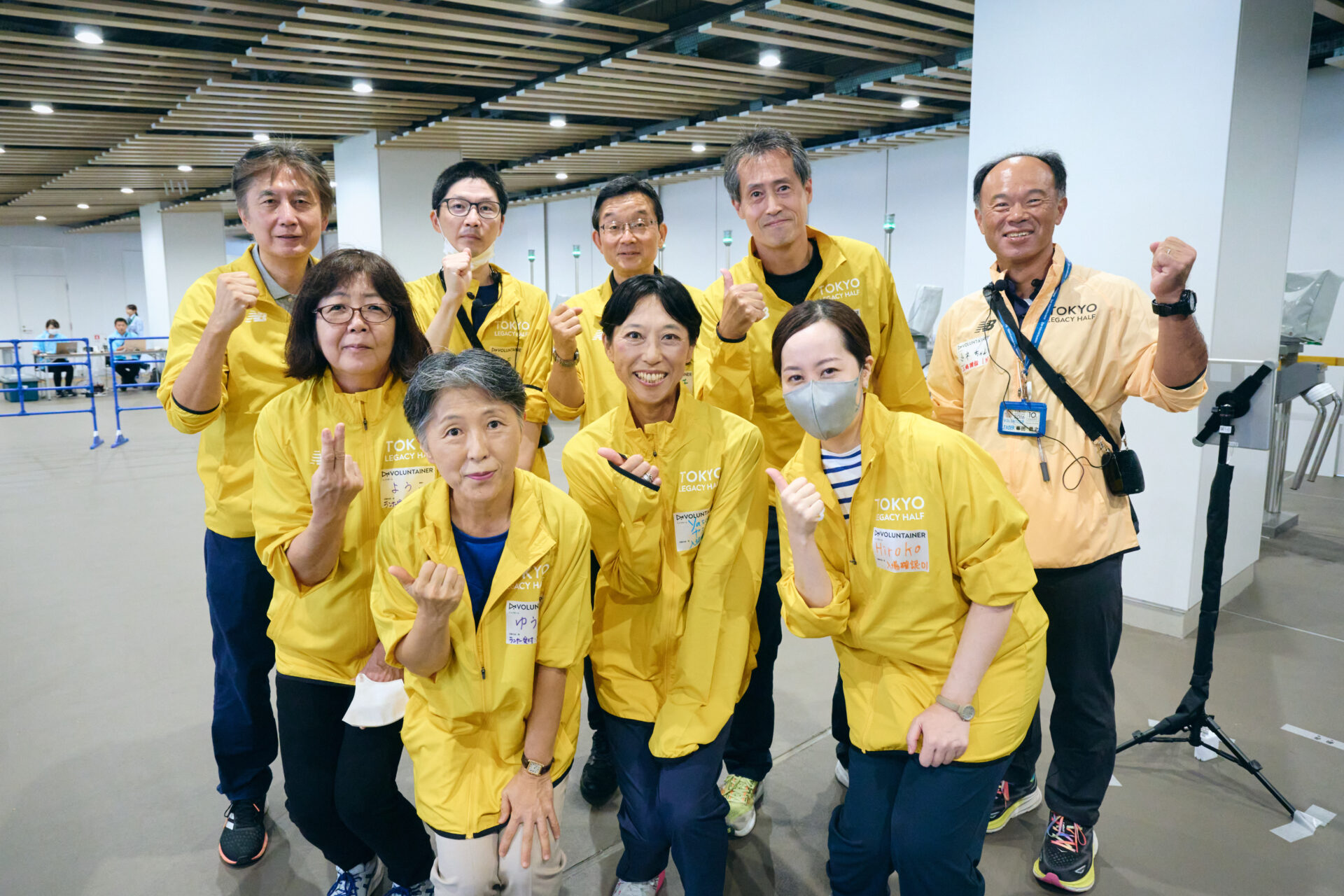
–In your opinion, how has the Tokyo Marathon volunteering activities evolved and changed since the first event in 2007?
I believe that with the establishment of the “VOLUNTAINER” organization by the Tokyo Marathon Foundation, various aspects have been systematically organized. Additionally, I see a greater “depth” as I was able to meet people with diverse backgrounds whom I had never encountered before, including those featured in articles on the official website. I believe this depth has been cultivated through many years of volunteer activities. This “depth” refers to the activities themselves, but also the connections formed between people. Over years, more and more volunteers have joined annually, allowing us to learn more skills from experienced members. In that sense, the longer we participate, the richer our activities become. At the same time, welcoming new members bring fresh insights and inspirations, adding to the joy and excitement of volunteering.
Furthermore, ever since the organization was formally established, I feel like we’ve been able to have more interactive communications between the organizers and volunteers. As a participant, I don’t intend to rely entirely on the organization, but understanding the intensions behind what VOLUNTAINER communicates allows me to align my activities with their goals. I think that the fact that we can easily express opinions to each other has steadily enhanced VOLUNTAINER’s ability to improve, execute, and communicate.
–VOLUNTAINER was established as the official volunteer club of the Tokyo Marathon Foundation in 2016, the year the 10th Tokyo Marathon was held. With the progress of VOLUNTAINER, do you think there has been any growth or change in the culture of volunteering in sports in Japan?
Since the first Tokyo Marathon, more people are participating in volunteer activities, and volunteering itself has become much more recognized. It’s now something that seems more accessible and familiar to people. About 20 years ago, when I would tell people I was volunteering, they would think I had an unusual taste, and they would wonder “Why would you sacrifice your time for free?” But nowadays I feel like more and more people don’t care about that at all, and more and more people are saying, “I’m doing it because it’s fun.’’
Additionally, in the past, I was more interacting with people from my generation, but now I see an increase in the number of people from broader age range-both older and younger generations. I do feel that the culture of volunteering has expanded to include people from all walks of life.
–From your perspective, volunteering in sports is starting to take root as a part of Japanese culture?
I do see it that way in a sense. From my own experience, after I told my coworkers that “I did some volunteering on weekend”, before I knew it, one day senior colleagues from the company were also engaging in volunteer activities, and they then invited their family and friends. It seems volunteering has naturally become a part of life. I see more families, including parent-child participants or couples are engaging together. It’s probably only recently that people who weren’t involved in sports clubs in their student days have started participating in volunteering in sports.
As a volunteer, as a staff member, as a runner

–So far, you’ve talked about some fun memories from your volunteering experience, but were there any difficulties or hardships you faced?
There were some small things like it was rainy and cold at the first and 2019 races, but I never really felt like I had any difficulties while volunteering. However, if I had to mention a tough experience, it would be the Tokyo 2020 Games when the COVID-19 hit and which could not be held in the ordinary style. It ended up being just a selection race for elite runners. Rather than finding it difficult at the time, I was sad and felt heartbreaking. That’s why, I was so happy when the race was resumed in 2022. In the 2024 race, we finally returned to a truly normal format. I was moved to see people cheering loudly like before, and seeing so many people watching along the roadside.
–I heard that while you are a volunteer, you were also involved in the Tokyo 2020 Games as a staff member of the organizing committee. Could you tell us the difference between volunteering and working at a sporting event, and the joy of each?
As a volunteer, there is a sense of security in being able to operate within an established framework. The real joy of volunteering comes from taking initiative and getting creative within that structure. On the other hand, when I was a staff member for the Tokyo 2020 Games, I was constantly driven by a sense of responsibility to ensure that the event day went smoothly. Up until the very last day—and even a bit beyond that—there was no room to relax. The organization was so massive that there wasn’t much time to enjoy it, but it was an invaluable experience. I think one of the key differences as a staff member is having a much broader perspective on the event as a whole. While I’ve never approached volunteering irresponsibly, I would say the biggest difference lies in the level of tension and the extent of that bird’s-eye view.
–Speaking of the Olympics, you participated as a volunteer in this year’s Paris Games. What differences did you notice between that and the Tokyo Marathon?

A relaxed atmosphere prevailed at volunteering at the Paris Games which was a limited-time event to participate for fun. On the other hand volunteering at the Tokyo Marathon seems to have a sense of striving for an even better event, as it is a recurring event. We enjoy volunteering while adhering to the rules, which likely gives a positive impression to the participating runners as well.
–You have experience in participating in a marathon as a runner. Did you ever feel the importance of volunteers?
Yes, I tend to participate in half marathons more often than full marathons, but I also enjoy marathon events as a runner, not just as a volunteer. I am always grateful for the volunteers who cheer us on with smiles and energy, even while carrying out their duties.
For local events like the Tokyo Legacy Half Marathon, it was wonderful to see so many VOLUNTAINER friends, whether it was at the start, baggage drop-off and return, course monitoring, aid stations, or the finish line. Meeting them gave me the strength to keep moving forward. Even during events held in cold rain, seeing volunteers who continued their duties without canceling was incredibly heartwarming, and I found myself waving back to them in gratitude.
I also enjoy participating in races that double as travel opportunities. It’s wonderful to receive support and encouragement from the locals and volunteers I meet for the first time; their cheers give me the extra boost.
A place where all kinds of people can experience running in various ways
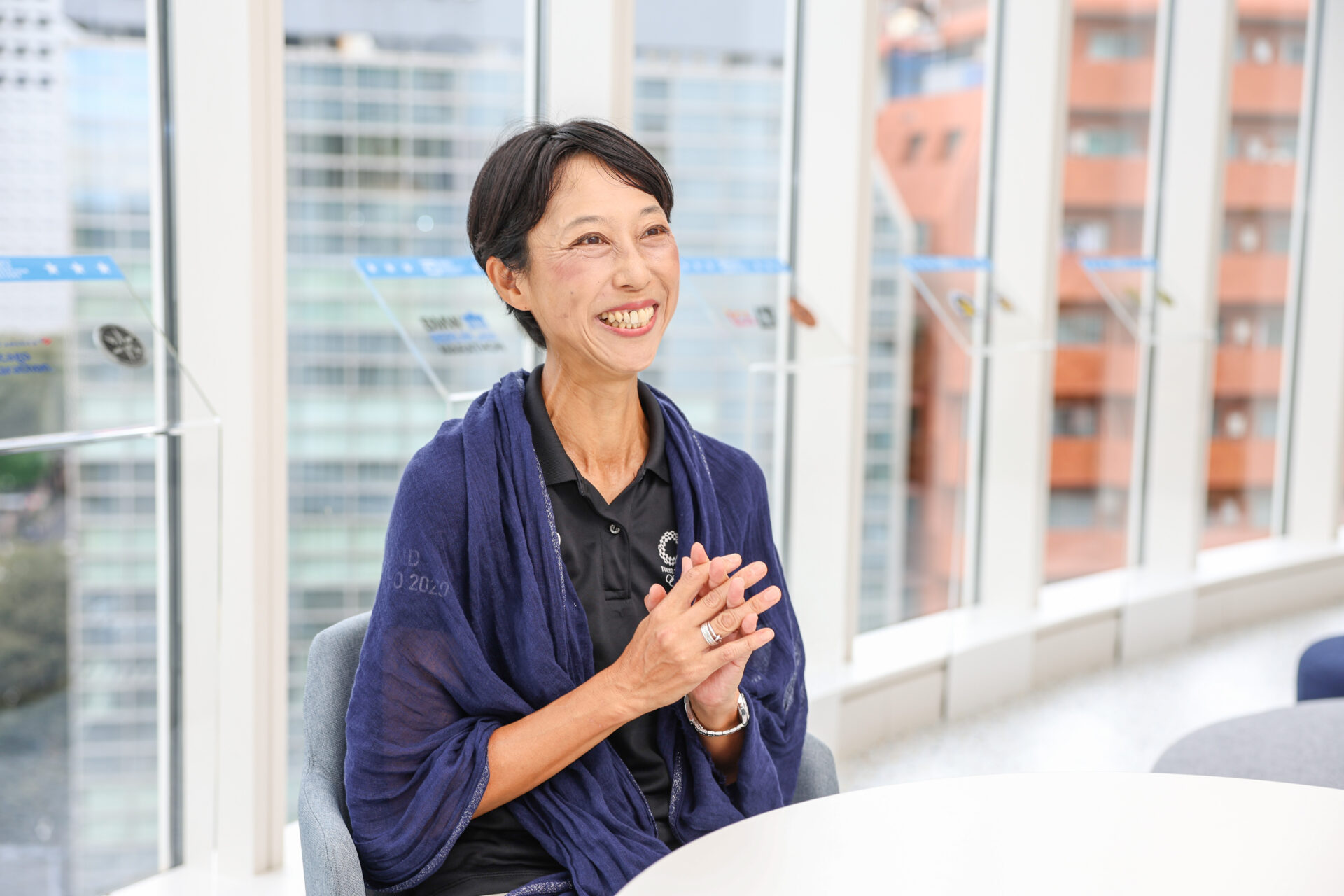
–What does volunteering mean to you?
To put it nicely, I think it’s a good opportunity to learn, grow, and enjoy experience in an environment different from work or school. For me, the Tokyo Marathon has become my own annual event, so I think, “Ah, it’s that time of year again!” Even though there are various events in my work and daily life, volunteering for the Tokyo Marathon is part of my annual cycle, so I let my life revolves around it (laughs).
–What are your expectations for the Tokyo Marathon in the future?
They have an overwhelming brand power, so I hope it can leverage that even more. For example, not everyone is able to run a full marathon, so it would be great if the event could offer more opportunities for different people to experience running in various ways, such as a Tokyo Legacy half marathon, or a friendship run, family run, or virtual run on the day before or the day of the Tokyo Marathon.
–What kind of future do you envision?
I think more people will feel inspired to participate in some way in this once-a-year festival. And if this spreads across Japan, even those who aren’t particularly skilled in sports will have more opportunities to feel like they’ve taken part in the Tokyo Marathon by getting involved in some small events. And that involvement could be as a volunteer, which I think is perfectly fine. Of course, generations of volunteers can change which is fine, but personally I believe that having different generations joining in together and creating a cycle that keeps expanding is a form of culture. I believe every generation has a role to play, and it’s great if we can all share our experiences and work together.
As for myself, I would love to participate in the 20th Tokyo Marathon, to feel like I will have come full circle with a sense of growth. It reminds me of the admiration I felt for the older volunteers I worked with during the 1991 World Athletics Championships—their dependability was inspiring. I remember thinking, however vaguely, that I’d like to become someone like them in a few decades. I’m also considering reaching out to current members and alumni of my school’s track and field club to encourage them to participate as volunteers.
—What kind of future do you envision?
I chose “My Tokyo Marathon is Always and On-going.” The word “on-going” reflects my desire to keep participating, and “Always” captures how it’s become a yearly tradition for me (laughs).
*1 Deputy Leader: A role who helps VOLUNTAINER leaders and members from the bottom and helps races and the VOLUNTAINER organization.
For more information, please click here (https://www.voluntainer.jp/feature/about_en)




